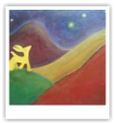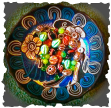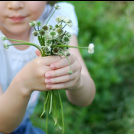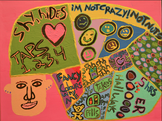408.823.4671
|
What's the difference between 'stress' and 'anxiety'? Are they both bad for us? Or is a little bit of stress sometimes helpful -- like that needed shot of adrenalin that gets us off and running when there's something we really want and need to do?
There's lots of research on the effects of stress and anxiety. Stress is inevitable for most of us these days, and research is showing that it's not the stress itself that's unhealthy. But it's how we react -- or respond -- that can turn the stress of a deadline into either a helpful motivator, or a debilitating problem. Here's a way to understand the difference: Stress is what we experience when we're facing an imminent, challenging situation, in the present. Anxiety is the longer-lasting worry or perseveration we can sink into, even after the stressful event is behind us and we're stuck in worry cycles about what might happen in the future. This recently appeared in some Psychology Today and contains some tried and true options. Click here for some great ideas to try for unwinding from that stuck place!
0 Comments
 “Between stimulus and response, there is a space. In that space is our power to choose our response. In our response lies our growth and our freedom.” ― Viktor E. Frankl, Man's Search for Meaning This is one of my favorite and most quoted quotes. It reminds me of something deeply human, and of one of the things I hope to help people tap into in our work: No matter what our circumstances, there is room for choice. The ways we respond to life's circumstances will make a profound difference in the way we live our lives, in our experience of suffering, and in our discovery of peace and joy. So in the face of pain, loss, or injustice, where might that room for choice lie? Therapeutic conversation invites us to dive deeply into this question, in order to find our own answers, informed by our own unique histories and inner wisdom. My job as a therapist is to help guide that conversation. One of many ways to nourish this kind of investigation is by practicing skills of mindfulness -- or "paying attention on purpose, in the present moment, and non-judgmentally, to the unfolding of experience moment to moment."* Mindfulness skills and practices are designed to help people reconnect with themselves (and others!) by cultivating awareness of their own moment-to-moment, physical and mental experience. For some, recognizing choice and "freedom" may arise through engaging with nature, creative work, exercise, spiritual practice, dance, music -- it really doesn't matter which one (or more) it turns out to be. Sometimes, experimenting with a new kind of "response" may be the first important choice you make in blazing your own path toward greater growth and freedom. * Quote from Jon Kabat-Zinn, PhD, author and founder of Mindfulness-Based Stress Reduction.
 Last night of MBSR class: Always moving, never the same. Friday night marked the end of our most recent 8-week MBSR (Mindfulness-Based Stress Reduction) class, here in Monterey. We arrive as strangers in this class, and over eight weeks of learning and practice, we discover (or re-discover) our shared lives, and we come to know parts of ourselves that may have gone unnoticed or unseen before. We come to learn how to live our lives differently and more fully, and to know more deeply what was there for us all along. And we come together. On this recent night, along with practicing mindfulness in stillness and gentle movement, we celebrated our time together with a light meal, an exchange of favorite poetry -- some written by participants -- and an activity involving tossing a ball of twine across our human circle. We each caught it and threw it, until the twine created a pattern connecting each member of the circle. Bracelets were then cut from the twine, to be decorated with beads we each brought. The finished bracelets became souvenirs of our precious moments of shared time, and of what we had learned here. Mindfulness practices have been around for thousands of years, so what we teach in this class has its earliest seeds in nothing new! In the '70s, Jon Kabat-Zinn created the MBSR program to carry these age-old practices through the doors of modern science, down the corridors of medicine, technology, and neuroscience research, to a secular audience of westerners seeking relief and/or solace. Students of the MBSR program he created now have access to powerful teachings that offer ways to manage many of life's "heart-breaks," ranging from anxiety and fear to chronic pain -- to life's "full catastrophe." ** A not-coincidental side effect of the program is the sense of camaraderie and connection we experience after 8 weeks of in-class and at-home practice. We discover ways to open our hearts and minds non-judgmentally and compassionately, through guided practices that originated thousands of years ago. In the re-discovery of stillness, breath, and body wisdom, 'individuals' in our classes find their connection to one another -- as well as themselves. Through a structured series of practices, readings, and discussion, MBSR participants begin the simple and most challenging skill of simply Being, with moment-to-moment, non-judgmental awareness of their own unfolding lives. * The quote up top comes from an old Hasidic tale. As retold by Gina Sharpe in On the Cushion, when a student asked a rabbi why teachings should be held on the heart instead of in the heart, the rabbi said it's so that "when the heart breaks, the teachings fall in." * * Kabat-Zinn named his book,"The Full Catastrophe," after this phrase quoted by Zorba in book-became-movie, "Zorba The Greek." No words.
That's what two of his longtime friends and allies tweeted. The loss of Robin Williams feels collective and deeply personal. In his life and with his death, the thread that weaves us together as humans is felt more deeply today than most days. Much can be said about depression. We study it, we work with it, and today, with the help of technology, we can even see its imprint on images of our brains. Often, we can loosen its grip on our hearts, freeing those of us dealing with it to live our precious lives again. We are in life together. Those of us alive today have been fortunate to share some of our time here with Mr. Williams. He helped us feel the ripples of our human connection. We never met him, but we all knew him as though he were a friend. We feel lucky to have palled around for a while with a man so hilarious, talented, and humane. Mr. Williams' acts of kindness, compassion and humanity, expressed both privately and publicly, say a lot to me about what kind of man he was between performances. People who knew him as a neighbor and father called him a "mensch," meaning "person of integrity." He both loved and did for others. Among the stories told about him this week, please listen for these. We should never underestimate the power of simple acts of kindness that cultivate our connection to one another. We live in a demanding and driven world. It can be hard to stay clear about what actually matters, for each of us. Who or what do we care about? What can we do about it? It's easy to get fooled into believing that no matter what we're doing, it's not enough, or it's not good enough. But what if each effort we make, in the simple direction of what we care about, actually counts? What if it really, truly is Enough? Today, in Robin Williams' memory, I offer this poem: "Forget About Enlightenment," by John Welwood Forget about enlightenment. Sit down wherever you are And listen to the wind singing in your veins. Feel the love, the longing, the fear in your bones. Open your heart to who you are, right now, Not who you would like to be, Not the saint you are striving to become, But the being right here before you, inside you, around you. All of you is holy. You are already more and less Than whatever you can know. Breathe out, Touch in, Let go.'  Helping our young children learn kindness and compassion for others may be the most important work we do as parents. But in their early years, it's natural for children to live right smack at the center of their brand new universe -- and to be far more attentive to what THEY want, & when THEY want it (how 'bout NOW!), than to how their behavior and expression affects others! So how do we begin to teach young children the ways of kindness and compassion for others? Here's an article that contains some worthwhile suggestions for parents looking for ideas: http://m.washingtonpost.com/news/parenting/wp/2014/07/18/are-you-raising-nice-kids-a-harvard-psychologist-gives-5-ways-to-raise-them-to-be-kind/  Watching the great reach of the ocean out my home office window, the words that come up for me today are: Vast. Mystery. Motion. Possibility. Humility. As a part of therapeutic work, we greet clients with compassion and humility, and a hopeful possibility about moving together through life's mysteries and challenges, into territories of growth and change. The ocean lets us feel the power of earth's ever-changing forces and diversity, and also gives us a metaphor for the rhythms of human life: Our relationships and emotions may feel SO turbulent at times, much like the surface of the ocean during a huge storm. But go beneath the ocean's tumultuous surface, into its less visible depths, and there is a wild stillness that defies shifting weather and seasonal vicissitudes. Here's the good news: In therapy, we can learn ways to steer through life's "rough waters" into what I think of as the sometimes-'wild stillness' of our preferred lives. Imagine, for example, that human storms show up for us as trauma, troubled relationships, anger, depression, anxiety -- or difficulty with a major (or minor) life transition. In therapy, clients can discover, beneath the surfaces of serious problems, new ways to revisit and challenge them. Therapy is about un-covering or re-covering the unique skills of living that can take clients closer to their own hopes and dreams. In therapy, we can help clients find ways of reclaiming possibility and purpose, in the face of sometimes serious challenges, in ways that can bring a renewed sense of balance and well-being. For some it might feel like learning to swim with the tide, instead of fighting and feeling carried under by it. Life's tides are bound to ebb and flow, and I believe it's how we learn to swim with them, and around the corners of problems, that makes all the difference in the quality of our lives. In closing, I offer these questions: How do you imagine stillness, or wildness, or both, in your own life? Would you call this "beneath-the-stormy-waters" feeling something else? Where might it reside in your heart, mind, or body? When have you felt it before -- and what does that tell you about what matters? |
AuthorRochelle is a licensed Marriage and Family Counselor, mindfulness instructor, and personal consultant. She hopes this blog will help shed light on some of the ideas that inspire her in her work with people. Archives
August 2015
Categories |

 RSS Feed
RSS Feed
